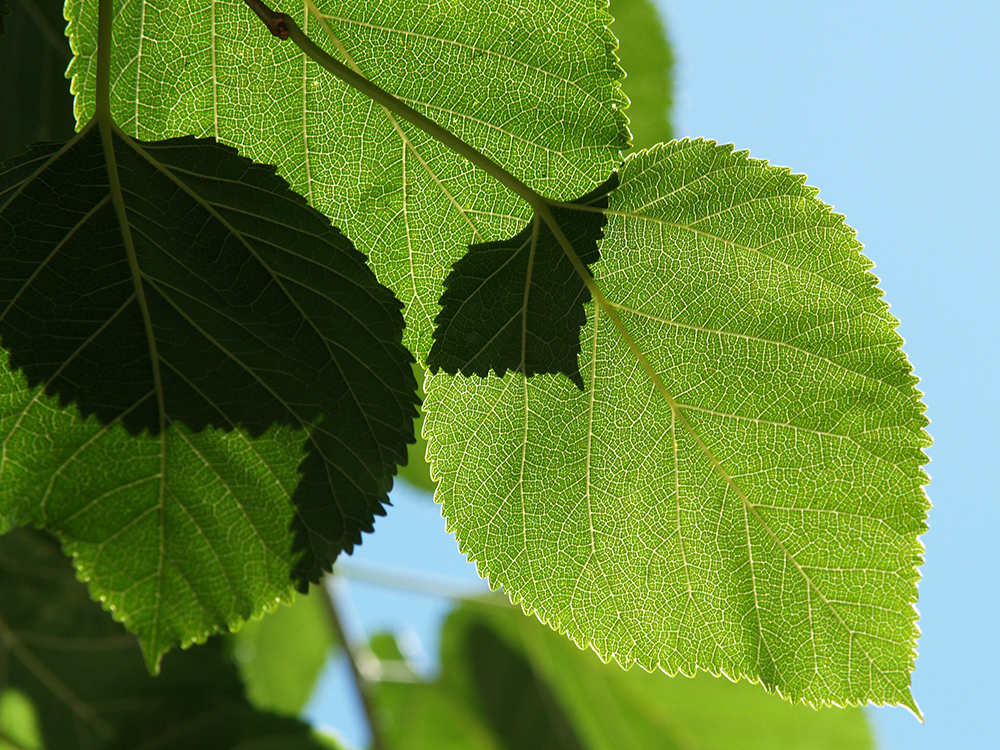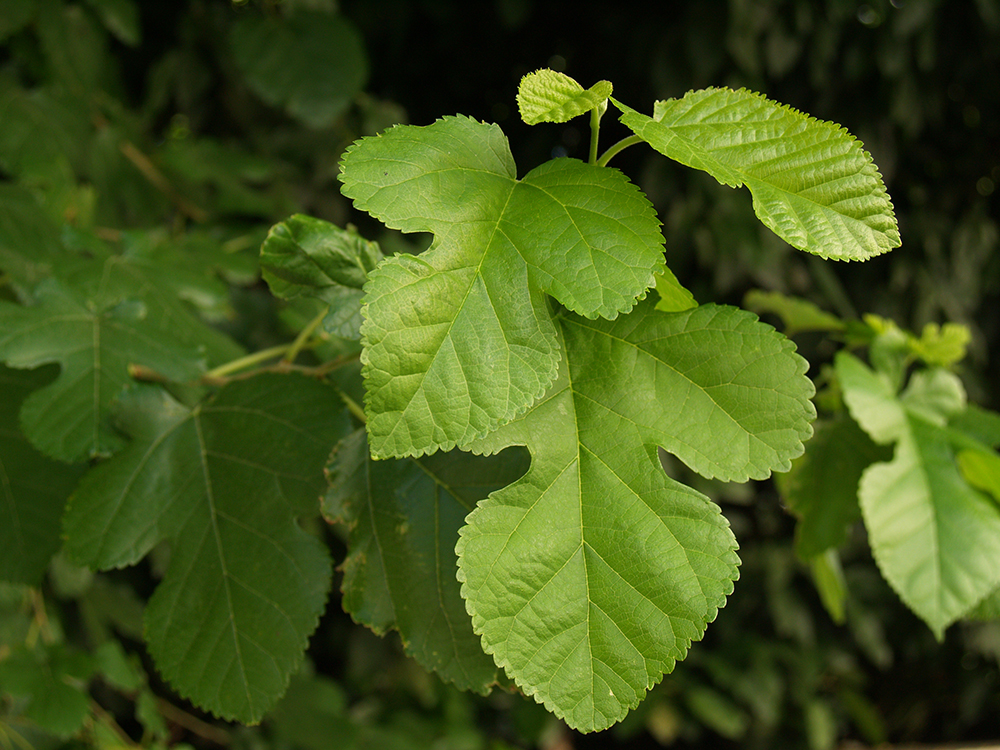
Black Mulberry
Morus nigra
Family and description
From the Moraceae family, the mulberry tree is a deciduous tree that can reach a height of up to 12m.
Its canopy is dense and quite branched, with a diameter of up to 10m.
The trunk and older branches have a split bark. In young shoots, the bark is smooth.
The leaves are alternate, ovate to heart shaped, often double-toothed, dark green and bright with yellow edges in the autumn.
It is a monoecious species (each individual has both male and female sex organs). Flowering occurs between March and May. The male flowers are arranged in thick and prolonged ears; the female ones are shorter and rounder, ovoid. Both flowers, light green in colour, are suspended by short peduncles.
The berry is a set of drupes with a fleshy axis in the centre, in this case called a sorosis. Each berry is usually between 2 to 2.5cm long and oblong in shape. In the case of the black berries, they are purplish in colour, turning dark purple when ripe and have a sweeter taste than the white berries. Fruiting occurs from May to August
Origin and habitat
Morus is the genus of deciduous plants native to temperate and subtropical regions of Asia. Not growing spontaneously in Portugal, it is a ruderal tree, which can arise in areas of habitation and on roadsides, as a result of fruit fall from cultivated trees or spreading by birds. It has a preference for deep soils, rich in organic matter and humidity.
Uses and curiosities
It is widely used in gardens and vegetable gardens, both for its shade and its fruit. It is a fast growing tree and has several uses. Its leaf is the food of silkworms and its fruit, when ripe, is edible. The black berries are very rich in vitamin C and all parts of the plant have medicinal properties, being traditionally used in infusions and syrups for the most diverse purposes.
This tree is referenced in Greek mythology, in the myth of Priam and Tisbe and in Greco-Roman mythology, where the mulberry tree is dedicated to the Goddess Minerva.
